Hello friends!
This is the last part of the series on my favourite thinkers and philosophers. I've already talked about the ancient Greek philosopher Socrates, one of the earliest Christian apologists St.Justin and the 19th century philosopher and father of existentialism Soren Kierkegaard. All the persons that I have examined so far are very much related when it comes to their beliefs, thoughts and actions and in my mind there is a continuation of thought, a true philosophical tradition that conveys a powerful message.
For those of you who have followed the series, my ultimate goal was exactly to pinpoint this. Even though these thinkers lived in different timeframes, centuries apart, different backgrounds etc. there was something that connected their lives. I consider all three of them as truly authentic beings, devoted to integrity and virtue. For me they are all true paragons of thought and action.
In this last part, I would like to talk a little about my favourite modern philosopher, Jacques Ellul. For me, he is the final part of this long tradition and his work is more relevant than ever. I present to you...
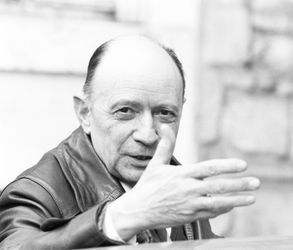
Life
Jacques Ellul was born in Bordeaux, France, in the 6th of January, 1912. He lived a carefree childhood along with his family in the outskirts of his city. After finishing his homework from school, he would often find himself playing and wandering freely around the parks and the fields of his city. This period of his life has probably created in him a love for the great outdoors, a love that accompanied him for the rest of his life. He attended Lycée Montaigne and was considered one of the best students. He was an excellent speaker of French, Latin and German and a very good student of history. After finishing high school he decided to become an officer in the navy but after the urges of his father he decided to study law at the university of Bordeaux. He obtained his doctorate in 1936 and then begun teaching at the Faculty of Law in Montpellier and afterwards obtained posts in Strasbourg and Clermont- Ferrand. In 1937, he married his wife Yvette Lensvelt with whom they had four children, Jean, Simon, and Yves, and a daughter, Dominique.

In 1940, shortly after the occupation of France by the Nazis and the establishment of the Vichy puppet government, he was expelled by the authorities due to his father's ''foreigner'' status. He then lived for a while in the village of Martres where he took up agriculture in order to live his family and also joined the Resistance movement against the Nazi occupation.
After the war he returned to his home city, Bordeaux. For a while he was active in the Bordeaux city administration and later served as a candidate for the Union Démocratique et Socialiste de la Résistance in 1945, but after this incident he decided once and for all never to be involved in politics again. He was later involved in other institutions and offices, non-political in nature. He held an office in the Reformed Church of France until 1970, he belonged to a club for the protection of juvenile offenders and joined the ecological movement and more precisesly the Committee for the Defense of the Aquitaine Coastline.
Later on, he would become a longtime professor in the university of Bordeaux on the faculty of Law and Economic sciences, teaching on the History and the Sociology of Institutions. He held this post until the end of his career and he said that while it was by luck that he was born in Bordeaux it was his choice to stay in his city and live there for almost all his life.
After a long period of illness, Jacuqes Ellul died on May 19, 1994 in his house in Pessac. Until the very end he was surrounded by his family and friends.
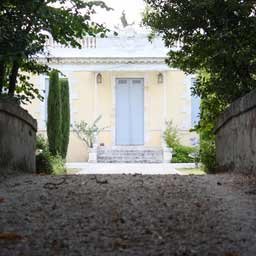
Impact and thought
Jacques Ellul wrote extensively in a variety of subjects. He was by training and vocation a sociologist and law professor but that didn't stop him to write pretty much about everything that interested him. He wrote 58 books and covered issues such as the impact of technology on the world and the human psyche, propaganda, the Christian faith, the position of the Christian in the world and many more. His most well known books are ''The Technological Society'' and ''Propaganda: The formation of men's attitudes''.
His greatest influences were Karl Marx and Soren Kierkegaard, coming in contact with their works while still a student. He started being very influenced by the ideals of communism but also those of Christian existensialism. In fact, after a spiritual experience that he had in 1930, Ellul became a firm believer in Christianity while not belonging to any official church. Another great influence of Ellul was the 20th century theologian, Karl Barth, who was the main opponent of the German state church in the period of World War II.
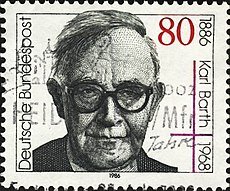
Karl Barth on a German stamp, Source
If you have ever heard the phrase ''Think Global, Act Local'' you can thank Jacques Ellul for that. He believed that an action can be considered authentic whenever it is directed on the immediate enviroment surrounding us. According to Ellul, one should act on a local scale in order for his action to be authentic, but should also analyze the impact of his actions from a global perspective.

Ellul's favourite subject was technology and it's meaning throughout time. He defines the term technique, distinct from that of technology, as:
"The term technique, as I use it, does not mean machines, technology, or this or that procedure for attaining an end. In our technological society, technique is the totality of method, rationally arrived at and having absolute efficiency (for a given stage of development) in every field of human activity. Its characteristics are new; the
technique of the present has no common measure with that of the past. (1)
For Ellul, technique was an abstract procedure that employed every available mean to the continuation of it's aim. He emphatically stated that instead of being a mean, technique, has become an end to itself. Simply, by looking his society at the time, he concluded that, at some point, the creation of ever new techniques in every field of human acticvity was not done in order to solve problems or achieve a specific purposes but rather because the continual creation of new techniques enabled and neccesitated the creation of new techniques, much like a chain reaction, an end to itself. Being highly critical of the modern Western mass society, Ellul supported that the ever increasing development of techniques in the end would ultimatelly put man and his psyche on the scope and try to subjugate him to the technical construct completely. He argued that man was not suitable to live the modern city life and that the only way to make him complacent would be through manipulation of his psyche and a crushing of his spirit in order to conform with his age. Simply, the only way for him to achieve this was through propaganda.
He was highly critical of mass culture and much like his influence, Soren Kierkegaard, he was highly sceptical and distrusted the general public opinion.
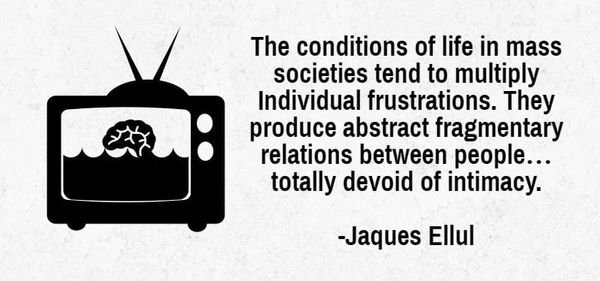
Aldus Huxley, author of the sci-fi dystopia ''A brave new world'', was once asked by some professors which is the most suitable book to read in order to understand technique scientifically. Huxley immediately reccomended Jacque Ellul's books and he had also popularized him to the United States and earning him a great following among university students in the 70's-80's.
For Jacque Ellul, propaganda was itself a technique. Through his analysis he has created perhaps the most comprehensive taxonomy of proganda, it's various aspects and the aims of the propagandist. Between the various modes of propaganda, the scope of it, the audience that it adhers to, the aims of the propagandist and the tools that he uses, Ellul makes clear that the rise and the totality of propaganda in the modern era is tied to the rise of technique, simply because propaganda serves technique's purpose to create a world in itself. For this, modern propaganda has created it's own myths that lies upon. Ellul designated some of those modern day myths as: the myth of progress, the myth of youth, the myth of hero etc. The myth and the reflex reaction are in Ellul's opinion, propaganda's sources of power.
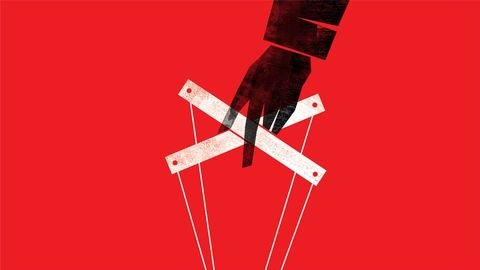
His theological investigations led him to write on various subjects such as the Chruch versus the world, the subversion of the true Christian Ethos, definitions of religion and an exposé of secular and political new dogmatic religiosity, the meaning of the city as a symbol of power and many more.
One of his most notable ( and a personal favourite ) books is ''Money and power''. In this book, Ellul analyzes the concepts of economy, wealth and money in the Old and New testament alike and arrives at certain conclusions about the nature of each, their significance, reception and understanding from men throughout the ages, their meaning in the eyes of God and their differences. He strongly believes in our inability to produce a solid economic system ( whether that is capitalist, socialist or some combination) and considers any systemic approach as irrelevant and unable to solve the problems it aims to solve.
One of the most striking observances by Ellul in this book, was that money itself is not simply an object, a tool or a symbol but actually consitutes a spiritual power in itself. Here Ellul makes reference to Jesus Christ in the Gospels ( Matthew 6:24, Luke: 16:13) where He says that "No one can serve two masters. Either you will hate the one and love the other, or you will be devoted to the one and despise the other. You cannot serve both God and money.''
This for Ellul is very important as the true nature of money is revealed here. He states:
What Jesus is revealing is that money is a power. This term should be understood not in its vague meaning, "force," but in the specific sense in which it is used in the New Testament. Power is something that acts by itself, is capable of moving other things, is autonomous (or claims to be), is a law unto itself, and presents itself as an active agent. This is its first characteristic. Its second is that power has a spiritual value. It is not only of the material world, although this is where it acts. It has spiritual meaning and direction. Power is never neutral. It is oriented; it also orients people. (3)
Whatever he chose to be involved with, Jacque Ellul was as uncompromising as authentic in his beliefs. Considered a Christian-Anarchist and a non-conformist, in the likes of Tolstoy, he dedicated his life towards the pursuit of truth as he understood it. Not willing to accept all too easy answers, modern dogmas, fancy words, myths and ideologies, his commitment has provided us with some of the finest blueprints to objectively evaluate where this world is heading and what we can do about it.
I'd like to finish this post with one of his remarks on God.
No matter what God's power may be, the first aspect of God is never that of the absolute Master, the Almighty. It is that of the God who puts himself on our human level and limits himself. (4)
Thank you for reading!
References:
1: Jacques Ellul, The Technological Society, Note to the reader
2: Jacques Ellul, Propaganda: The formation of Men's attitudes, Chapter 3, Page 70
3: Jacques Ellul, Money and Power, Chapter 3, Page 75-76
4: Jacques Ellul, Anarchy and Christianity, Page 34
PS: Apart from everyone who has followed this series of posts ( I appreciate all your comments and your upvotes ), I'd also like to thank my Very special friend Vidie who stood next to me in the long hours of researching about and compiling these posts. I wouldn't have completed these posts without her support. I have dedicated a considerable amount of time in order to put my thinking into order and it is the first time I do something like that. Please forgive me for my mistakes, I have not covered even half of the things I'd like to cover but eventually if someone goes through these posts and searches a little about these persons and their work on his own he will understand much more. I hope I have intrigued you and provided you with the resources to search on your own if you wish.
God bless you all! I wish you happy Christmas with your loved ones and a happy new year!
This is what was most relevant to me, because of the way it is comng true, crushing mankind.
All together, I would say you have done a very good job of keeping the arguments limited to the basic points that needed to be explained. It may have been tempting to digress (as I always do in my posts and comments), helping those of us who are nottrained in considering philosophy.
As for his distrust of public opinion - would it not be true to say that most times public opinion is moulded by arguments made successfully? So, it is not the public to blame, if their opinion is wrong, but the fault of those who argued it so successfully?
@arthur.grafo this was a concern of mine actually. I wanted to keep my posts as short as possible but also to present as much as possible so I'm glad that I have found some balance in between. I could make the posts many time longer but then I would make it much harder to provide insights and keep this interestng.
The part that you shared is of much importance to me. We see today mankind in a dillema. In order to pursue the ever increasing ''progress'' at some point we will be called to sacrifice what is human in us. This is the crushing of our spirit and our subjugation to the powers that be, whether these are political in nature, technological, economic or else. There is already one recognized trend in that field, called transhumanism.
As it comes to public opinion, indeed the fault lies mostly on those who utilized the public and used it for their purposes.
But the fine point is this. While most of the responsibility lies in the propagandist's hands, the responsibility of the individual cannot be disolved just because he belongs to a multitude. Simply, we bear a responsibility too and it is hypocrisy to claim that we didn't know or that we were unaware. We must adress our responsibility as well.
No society can survive if it is composed solely of one type - philosophers, for instance. Most people work long hours and are not highly educated. They also do not have a liking of intellectual pursuits, many from childhood preferring to work with their hands.
We need them, for the rest of us would have to become hunters-gatherers if we did not have them, which means we would become them.
Some ask, why then allow them to vote, since they have only a limited understanding of the issues? I think I know why we should.
Most intellectuals become impractical, buidling theories that don't even have a hint of sand to hold the foundations, with others building upon them. The working class people are very practical and sometimes their instincts drive them in the right direction.
I am wondering what would Jacque Ellul say if he lives in our era, which local is global, and technology might take over human and become god.
@itsok I don't think he would say anything. I mean his work speaks for him and as the years pass byit becomes more relevant. You can see the myth of progress for example nowadays, many believe in technology and science as the only reasonable answers for the betterment of our lives but the truth is far from that. We will see more in the next years and things will become clear eventually. I think that the only way to have a better life is to love the other person next to you. It is this simple for me.
Thank you for commenting here! Appreciated!
Kalimera kali kala xristoygena.. poli wraio to post sou..
Ευχαριστώ πολύ @nikosnitza, να είσαι καλά!
Καλά Χριστούγενα εύχομαι σε σένα και την οικογένειά σου!
Episis ...kai kirips na exeis igia kai eytixixia
Congratulations @theodorelib! You have completed some achievement on Steemit and have been rewarded with new badge(s) :
Click on any badge to view your own Board of Honor on SteemitBoard.
For more information about SteemitBoard, click here
If you no longer want to receive notifications, reply to this comment with the word
STOP